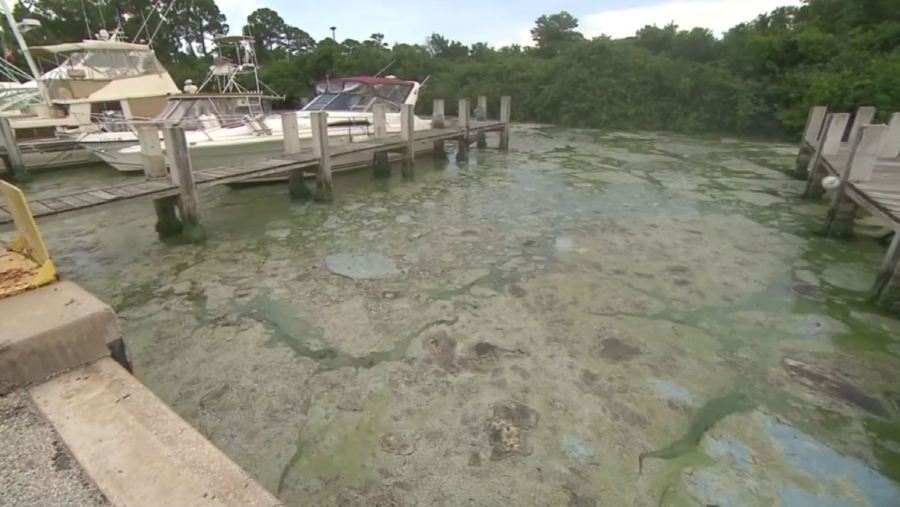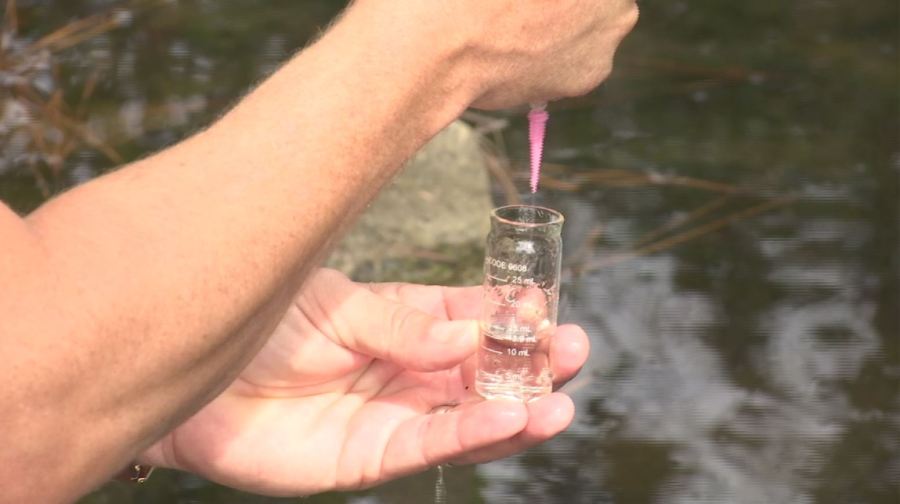HORRY COUNTY, SC (WBTW) – The Clemson University Extension Service in Horry County is doing something about the dangerous algae News13 recently told you about in ponds across several states like North Carolina, Georgia and Texas.
Anyone who fears the blue green algae might be in their pond, can sample their water and bring it into the Clemson University Extension Service’s office. They can look at it in house and send it off to be officially tested for the bacteria.
“Really it’s not an algae, it’s a bacteria,” said Ben Powell, an extension agent for the Clemson University Extension Service in Horry County.
It’s called cyanobacteria, and it has the potential to bloom and take over a pond.

“Being that they’re bacteria, they’re able to replicate and produce large quantities, really quickly,” said Powell.
Cyanobacteria is a dog-killing algae, and can be easily spotted.
“The whole pond turns pea soup green, and it gets films and swirly mess on the surface,” said Powell.
If your dog drinks the contaminated water, Powell recommends you take them immediately to a vet to get assistance.
“A lot of the toxins have neurological effects, so you might notice that the animal starts to breathe quickly, gets disoriented, maybe vomiting. Things like that,” he said.
The blue green algae is mostly seen in residential storm water ponds, or livestock ponds on farms.
“It’s usually when we have stagnant conditions, where there’s not a lot of rainfall, it’s really hot, and there’s a lot of nutrient in the water,” he said.
The Clemson University Extension Service helps by having science-based information online, dispelling the myths about algae and you can also bring in a water sample to their office to be tested.

Powell says you can also take matters into your own hands to combat the germ.
“We encourage folks to circulate the water if they have algae problems,” he said. “It’s not going to solve an existing problem, but it can help reduce or prevent future problems.”
And don’t be fooled, not all algae is bad.
“You should tolerate some algae, especially this time of year,” Powell said. “I mean, middle of the August, it’s hot as can be, fertilizers have been all over the lawns all summer long. You’re going to get some algaes around the edge of your pond. That’s not a bad thing.”
If you suspect algae is in your pond, Powell recommends that your HOA hire a lake management company.









